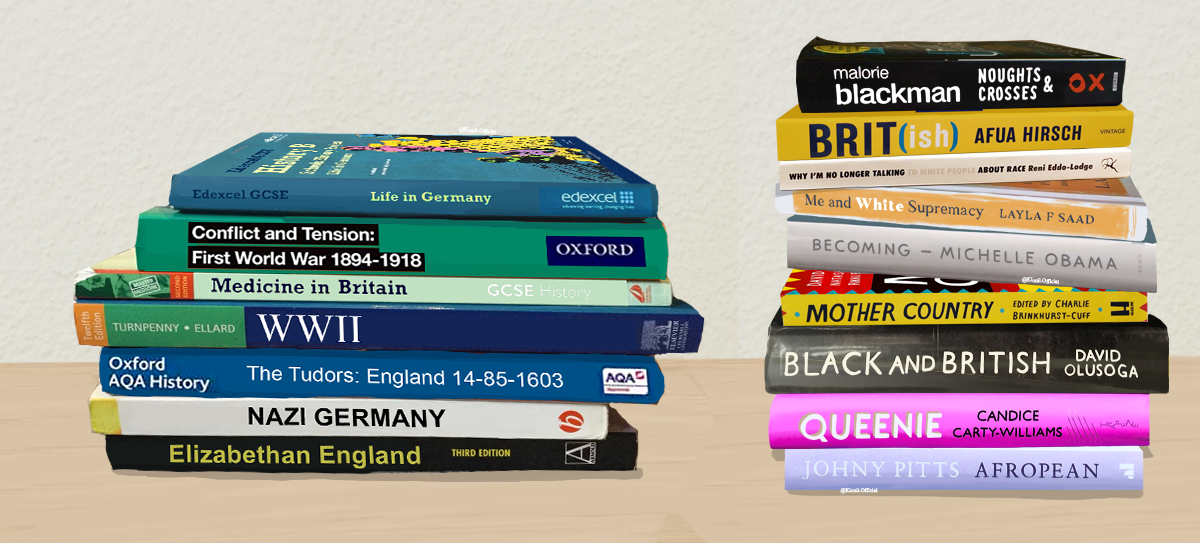Black and History. Two words that up until the recent BLM movement I only really heard about once a year in the UK during Black History Month. I would get excited because there was always somewhere fun to be, something to get stuck into with friends; a dinner ball, a charity fundraiser, a talented story-teller, somewhere I knew I’d be surrounded by a sea of faces like mine. All excited for the same cause – to breathe in our blackness, our beauty, our culture, to expel laughter, an appreciation for one another. The stripping of our identity was restored, at least for a moment, and in case it had been forgotten (within the past 11 months) we were reminded we could do more, be more, and that “we are enough” (Carty-Williams, 2019). I would hear inspirational stories from people like me, born here of Nigerian parents, I instantly sensed my tank refuelled. I was their legacy that needed to be invested in (Brinkhurst-Cuff, 2018). It felt good to be black. I would shrug off a comment I overheard earlier that day... ‘so why’s there no white history month?’ they’d say. That is before the weather started to turn cold and the fireworks kicked in and all was but a memory of yesterday, until you were planning for the next one!
So why is there such a lack of black history taught in our schools?
Why is our history, built over hundreds of years, reduced to just one month? I grew to greatly dislike history lessons and avoided studying it further than required. Besides the fact that the classes just became super monotonous; (divorced beheaded died, divorced beheaded...) well the teaching style was dying along with them! I also felt so detached from it all, born and raised in England yet I could not relate...King Henry VIII they said... (if I heard his name one more time...) The Magna Carta and the ‘Glorious Revolution’. Okay, but whiteness is (clearly) not the only civilisation (Hirsch, 2018) so where did the Afro-Romans fit into all of this? Where were our vital contributions to World Wars? It was at this time that I began reading and research of my own – I’d stay behind at the library after school and find out all I could from the old encyclopaedias that then decorated our home study. If they weren’t going to teach me, I would.
The lesson?
Then the lesson on the ‘transatlantic slave trade’ began. As one of the few Africans in our year I was curious, my heart beating as I entered the class. Where would the conversations go? Would they tell us what really happened? Who at my school would care? We began in the textbook then onto short films. As I expected before the end I was asked “where are you from” (Edo-Lodge, 2017) and I could see the teacher getting more uncomfortable as questions were fired to the front. They didn’t have all the answers yet it was clear the room was in shock, some even moved by the brutality that took place by humankind, their kind, all those years ago. And yet somehow, now that it was out in the open, I left feeling ever more isolated and alone, pitied even. The general consensus? That racism was real but for the most part has been buried along with the dead. Not from my experience! And I thought history was supposed to be the truth (Blackman, 2006) not full of neglected topics!
To agree with Hirsch (2018), mainstream British history becomes unstable and unhelpful to us if the very system the institutions are founded on are enveloped in white supremacy. The various educators and teachers often perpetuate behaviours and stereotypes of black culture so that our history is so watered down, it is almost erased, yet our mothers have fought so hard for our education to exist (Olusoga, 2016) and to be seen as equal. “We are a nation in denial about our imperial past and the racism that plagues our present” (Hirsch, 2018). Even with inter-racial relationships, millions of white Britons have become part of the Black British story, this too cannot just be ignored. We need to rebuild this understanding for ourselves, our mental health, our passions and dreams, for our communities to be re-voiced and generational mind-sets challenged. As we begin to communicate that we are enough and our lives do matter, we recreate it, celebrate it. This is an urgent call for change that begins now.
By Grace Davies
Published by Kionii
Reference books
Noughts and Crosses, Malorie Blackman, (2006)
Brit(ish), Afua Hirsch, (2018)
Why I’m no longer talking to white people about race, Reni Eddo-Lodge, (2017)
Me and White Supremacy, Layla F. Saad, (2020)
Becoming, Michelle Obama, (2018)
Mother Country, Edited by Charles Brinkhurst-Cuff (2018)
Black and British, David Olusoga (2016)
Queenie, Candice Carty-Williams, (2019)
Afropean, Johny Pitt (2019)


Leave a comment